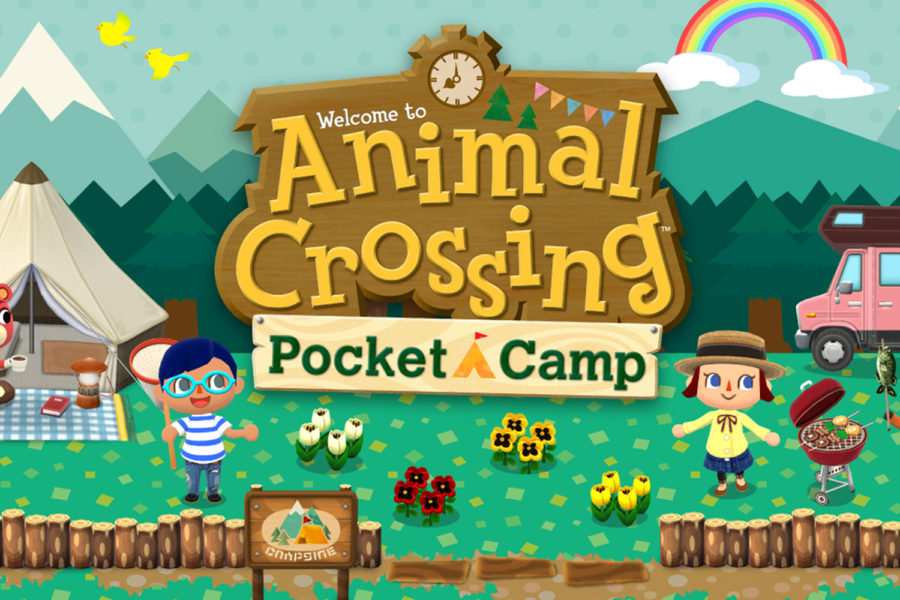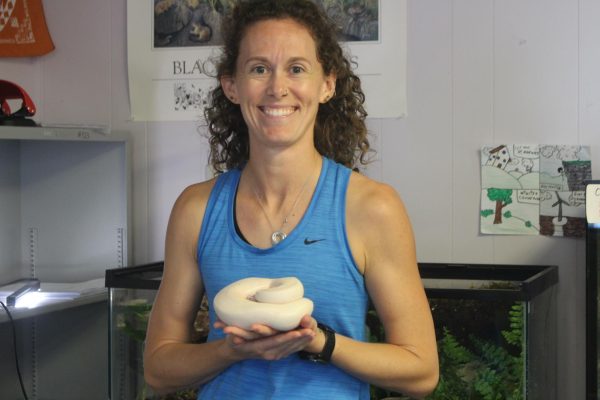Animal Crossing Pocket Camp is a stress-free joy to play
Mobile version of Nintendo classic offers slimmed-down gameplay for fans of all types and ages
January 12, 2018
Almost five years since Animal Crossing: New Leaf was released on 3DS, the latest version of the game is finally out, although Pocket Camp might not be what fans were expecting.
I’ve been playing for a couple of weeks now and while I have enjoyed the game for the most part, my overall experience with Pocket Camp itself pales in comparison to the experiences I have had with previous installments. It makes changes to the usual formula that most fans might be used to by removing some traditional features and introducing some new ones.
The Animal Crossing franchise is best known for its carefree and relaxing atmosphere that can be enjoyed by anyone of all ages. It’s large cast of charming and friendly characters is filled with personality and almost always make players feel welcomed and at home. It’s an open-ended life simulation game full of freedom and exploration, where players could do just about whatever they want whenever they want.
The first thing players should know is that because it is designed for mobile, Pocket Camp is a slimmed down, almost bare-bones version of what the series typically offers. So if you play it you should not expect it to give you the entire experience that you might be used to.
In Pocket Camp players are still befriending neighborly animals, customizing personal spaces, and collecting fruits, fish, and insects. However, instead of being set in an urban area like in previous games, players begin their journey on an empty campsite that is given to them to manage. The player’s objective here is to both transform the campsite into a outdoor getaway and host as many campers as they can by inviting them to their campsite. However, this is easier said than done. Depending on what kind of furniture and amenities the players craft based on materials they have collected, they determine how an animal will feel and whether or not the animal will choose to stay at the campsite. How players go about doing all this is where Pocket Camp begins to differ from other titles.
In past games players could get offered to do favors for the animals and choose whether or not to complete the requests. But in Pocket Camp completing requests is one of the main focuses, if not the only one. Players gather most of their materials from completing fetch quests for the animals that they interact with.
However, other materials can be awarded to the player either by leveling up, or completing in game goals. The things that animals will request will range from fruits, fish, bugs and other items that the player will come across and be able to collect. Doing favors for the animals will make them more affectionate and build a closer bond with the players as the game progresses. The higher the affection meter between the player and the animals the higher the player’s level will go.
Pocket Camp introduces a new form of in-game currency aside from Bells. Leaf Tickets that can be slowly collected or bought with real money purchases. Both are earned in game for free, but Leaf Tickets require more of a grind. The game doesn’t ever pressure or punish players for not having enough Leaf Tickets though. I haven’t once felt the need to buy any Leaf Tickets because I’ve been able to make due with what the game has already provided me by leveling up. The purpose of Leaf Tickets are merely to serve as an incentive to spend money. They make timed events such as crafting furniture and amenities finish much quicker. If players are missing certain materials to craft a certain piece they can use Leaf Tickets instead of the missing material needed.
In Pocket Camp, players are also given their very own camper, which is essentially a minivan that they can personalize and decorate. Overtime, as players accumulate more Bells and Leaf Tickets they will be able to make changes to their camper with special paint jobs, customizable interior options, and eventually have the ability to add a second floor. All of this is done at OK Motors which is run by the newly introduced characters Giovanni and his colleagues Beppe and Carlo.
It makes changes to the traditional formula, but nothing too drastic that makes it unrecognizable. The new take with its crafting, leveling and other similar RPG mechanics can feel somewhat refreshing even if it’s not what fans are used to or expecting.
And if that’s not enough, there is still more to come as the game itself has made announcements of major updates coming soon to the mobile game.








